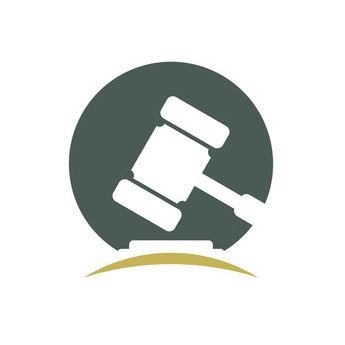Best Faith-Based Law Lawyers in Guatemala
Share your needs with us, get contacted by law firms.
Free. Takes 2 min.
Or refine your search by selecting a city:
List of the best lawyers in Guatemala
About Faith-Based Law in Guatemala
Faith-based law in Guatemala involves the intersection of religious beliefs and legal frameworks. This often involves legal guidance and adherence to religious practices in family and community life. While Guatemala is primarily a secular country, the legal system allows for the incorporation of faith-based perspectives in certain matters, such as marriage, family law, and moral controversies. Faith-based laws may influence decision-making processes in religious communities, and these influences can occasionally encounter conflicts with secular laws.
Why You May Need a Lawyer
People may require legal help in faith-based law for a variety of reasons. These include resolving conflicts between secular and religious law, handling disputes within religious communities, managing faith-related issues in marital and family settings, and interpreting how faith can influence legal obligations. A lawyer with expertise in faith-based law can also help ensure that religious practices are respected within the legal framework and can assist in defending one's religious rights.
Local Laws Overview
The Constitution of Guatemala allows for freedom of religion, and this is reflected in various aspects of the country's legal system. While the country is dominantly Catholic, the legal framework accommodates multiple faiths. Family law, for instance, may allow for religious ceremony recognition. Similarly, faith-based entities are often involved in social and community services, with certain religious institutions having agreements with the government to provide educational and social welfare services. It is vital, however, to ensure that faith-based practices do not contravene other national laws, such as human rights obligations.
Frequently Asked Questions
How does faith impact legal decisions in family law?
Faith can play a significant role in family law decisions, especially concerning marriage ceremonies or agreements validated by religious officials. However, these must comply with the country's secular legal requirements.
Are religious marriages legally recognized in Guatemala?
Religious marriages are recognized provided they are registered with the civil registrar. Individuals must ensure that their marriage complies with legal requirements to gain full legal status.
Can religious groups own property in Guatemala?
Yes, religious entities can own property in Guatemala. However, they must comply with national laws concerning property ownership and taxation.
What is the role of religious leaders in legal disputes within communities?
Religious leaders often play a role in mediating disputes within communities, especially in matters primarily involving faith or ethics-related issues. However, their decisions are not legally binding unless recognized by a civil court.
Do faith-based laws impact inheritance issues?
Faith-based perspectives may influence inheritance distributions, particularly within religious communities that follow traditional laws. Still, these must align with national inheritance laws to be enforceable.
How are faith-based schools regulated in Guatemala?
Faith-based schools operate under the national education laws but maintain the freedom to incorporate religious teachings into their curriculum, provided they adhere to required educational standards.
Can I refuse a medical procedure on religious grounds?
Individuals may refuse medical procedures on religious grounds, but it is essential to notify healthcare providers in advance and document such preferences legally, where necessary.
What legal protections exist for religious freedom in employment?
Workers are protected from discrimination based on religion. Employers must respect religious practices, provided it does not impede the business's operation or violate other employees' rights.
How can faith influence legal contract agreements?
Parties may include faith-based principles in contract agreements; however, they must ensure these terms do not violate national laws or public policy.
Are faith-based legal services available in Guatemala?
Yes, there are legal service providers and non-profit organizations offering faith-based legal advice specifically tailored to incorporate religious considerations in legal issues.
Additional Resources
For additional assistance, individuals may contact the Guatemalan Ministry of Religious Affairs, local legal aid organizations, or specific religious institutions that provide legal guidance aligned with their faith. Organizations such as Caritas Guatemala and the National Evangelical Alliance might also offer support and resources.
Next Steps
If you need legal assistance in faith-based law, start by identifying whether your issue is primarily faith-oriented or involves a mix of legal and religious concerns. Contact legal professionals with expertise in faith-based law to discuss your situation and gain guidance. Additionally, consider reaching out to your religious community leaders for support and possible recommendations for legal counsel. Ensure any advice or agreement aligns with both religious beliefs and national legal requirements to prevent conflicts.
Lawzana helps you find the best lawyers and law firms in Guatemala through a curated and pre-screened list of qualified legal professionals. Our platform offers rankings and detailed profiles of attorneys and law firms, allowing you to compare based on practice areas, including Faith-Based Law, experience, and client feedback.
Each profile includes a description of the firm's areas of practice, client reviews, team members and partners, year of establishment, spoken languages, office locations, contact information, social media presence, and any published articles or resources. Most firms on our platform speak English and are experienced in both local and international legal matters.
Get a quote from top-rated law firms in Guatemala — quickly, securely, and without unnecessary hassle.
Disclaimer:
The information provided on this page is for general informational purposes only and does not constitute legal advice. While we strive to ensure the accuracy and relevance of the content, legal information may change over time, and interpretations of the law can vary. You should always consult with a qualified legal professional for advice specific to your situation.
We disclaim all liability for actions taken or not taken based on the content of this page. If you believe any information is incorrect or outdated, please contact us, and we will review and update it where appropriate.
Browse faith-based law law firms by city in Guatemala
Refine your search by selecting a city.












